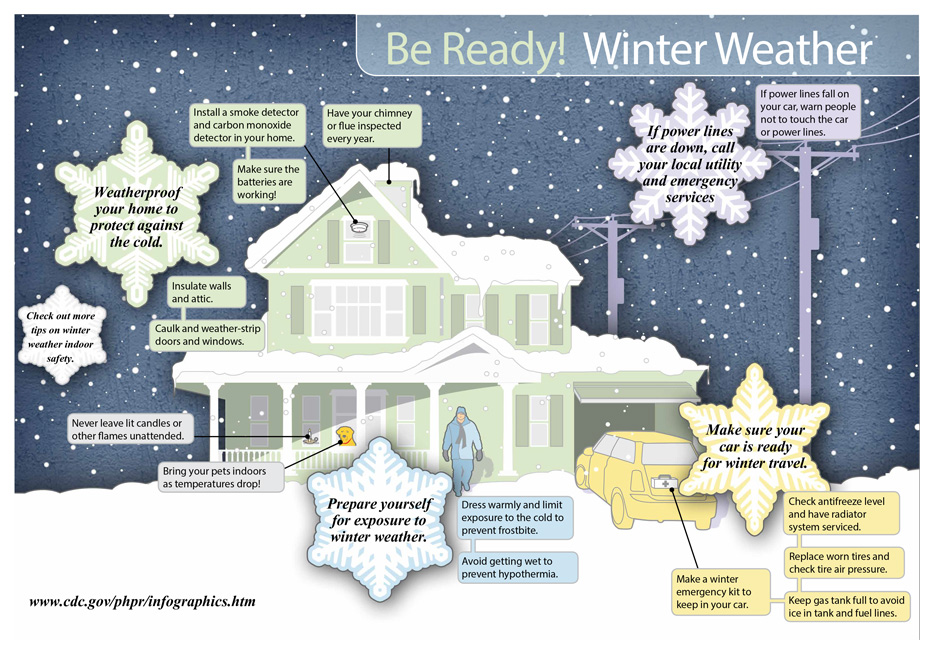Every year, severe winter weather poses a great risk for you and your family. Here are some tips to keep you and your loved ones safe:
1. Be informed.
Part of being prepared is being aware of the different types of winter storms and weather advisories. Watch for these warnings on your local weather channel to stay informed.
- Winter Storm Warning: This is a warning for life-threatening winter weather conditions. If it has not already begun, it is expected to begin within the next day.
- Blizzard Warning: Blizzards are a combination of snow and heavy winds and usually last no less than three hours. Wind-chill may be life-threatening.
- Winter Weather Advisory: This is not as urgent as a warning. However, hazardous weather conditions including snow or freezing rain are expected and may cause inconvenience.
- Frost Warning: Below-freezing temperatures are expected.
2. Be prepared.
Given the various risk factors of winter storms, including loss of heat and water, properly preparing yourself and your home to face them is crucial.

Here are some additional tips on how to face severe winter weather:
1. Be prepared to evacuate if necessary.
2. Stay tuned in to your local weather channel for updates.
3. Stay indoors and wear layers as necessary.
4. Stay hydrated.
3. Be proactive.
Here are some tips for recovering after severe weather has passed:
1. Continue to monitor local weather stations. Here are some resources to help you stay informed:
Weather.gov
Winter News on Weather.com
NOAA Weather Radio: a nationwide radio station network that broadcasts National Weather Service warnings, watches, forecasts, and other information 24 hours a day from a nearby National Weather Service office.
2. If you are left without power or heat, seek refuge at a friend’s house or local shelter.
Southwestern PA Red Cross:
2801 Liberty Ave, Pittsburgh, PA 15222, Phone: 888-217-9599 (toll free)
3. Offer help to those who may require extra assistance during an emergency such as the elderly or the disabled.
4. Continue to keep your pets indoors until their safety is assured and provide adequate food and water.
5. To avoid carbon monoxide poisoning or fire, monitor your portable generators.
Sources:
Please note that the information contained in this posting is designed to provide authoritative and accurate information, in regard to the subject matter covered. However, it is not provided as legal or tax advice and no representation is made as to the sufficiency for your specific company’s needs. This post should be reviewed by your legal counsel or tax consultant before use.

